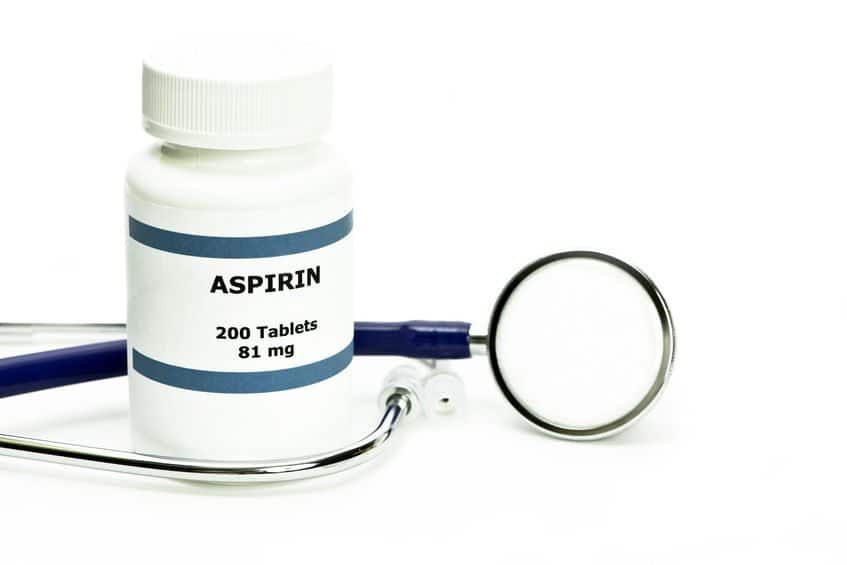
[cmamad id=”3608″ align=”center” tabid=”display-desktop” mobid=”display-desktop” stg=””]
Today’s newsletter is about an unfortunate reality of men’s health.
We’re going to talk about colonoscopy screenings, tumors, and skin tags.
Most people understand that colonoscopies are used to detect cancer.
And doctors routinely request these tests as part of preventative care for their patients.
They see the procedure as a way to prevent colon cancer.
The test is intended to locate tumors and remove polyps.
They hope that with this process, they find any cancer early when it’s easier to treat.
But the idea behind colonoscopies is not only to detect early cancer.
They are also for preventing cancer.
Colonoscopies identify potential tumors that can be removed before turning into cancer.
These potential tumors are called polyps.
And they remove polyps that might one day become cancerous.
Here’s a photo of one:

Polyps are actually a type of tumor.
So are skin tags, even though most people don’t realize that.
Tumors are mostly not cancer — usually, they’re just benign growths.
So for the most part, they’re not dangerous at all.
There may even be a protective function that the tumors serve for the body.
And so, it may not be a good idea to remove them.
Still, people find them concerning and usually have them removed.
[cmamad id=”3609″ align=”center” tabid=”display-desktop” mobid=”display-desktop” stg=””]
If you have skin tags that concern you, you’ll feel good about this study.
It’s an excellent high-quality randomized study.
The study looked at the relationship between skin tags and polyps.

When researchers looked at the results, they found that there wasn’t much evidence that having many skin tags increased a patient’s number of polyps.
Only slightly more people who had a lot of skin tags also had intestinal polyps.
The correlation was so small as to be insignificant.
Cutaneous skin tags are not a marker for adenomatous polyps of the colon.
The study didn’t find enough evidence that skin tags had any relationship at all to how many polyps a person would have.
This makes me question why we push colonoscopies.
The whole theory of colonoscopies is to remove these kinds of polyps.
They’re removed in the hopes that since they’re gone, they can’t turn into cancer.
But are the dangers of the colonoscopy really beneficial?
Is it worth the risk to avoid cancer that may never exist?
There are a lot of dangers to colonoscopies.
I personally will not get one.
I don’t think that they actually are much of a help either.
But I’ll cover that in another newsletter some time.
In this newsletter, I want to cover a very simple way of cutting down or eliminating the number of polyps that you develop.
The next study that I want to show you tells us how to do this.
This is an excellent study.
It’s a randomized controlled trial, which is the least biased type of study.
And it was published in the prestigious New England Journal of Medicine:

The researchers took people who had a history of cancer, and they gave them one adult-sized aspirin every day.
Then they monitored the patients for several years.
They compared the results to a control group that did not receive the aspirin.
They found that the aspirin had a significant impact on the number of polyps and tumors.
One adult-sized aspirin per day radically cut down on the number of polyps and tumors in these patients.

The interesting thing is that people with a higher number of polyps saw the largest benefit.
If a person had three or more polyps, their improvement was the greatest after taking aspirin for a while.
And this incredible improvement happened without a colonoscopy or other invasive procedure.
That left the researchers wondering if the aspirin saved lives.
So they looked at the entire group of experimental subjects.
They looked to see if there were fewer deaths in one group or the other.
Overall, there was no difference the number of deaths between the aspirin and the nonaspirin people.
So all-cause mortality was no different in those taking aspirin.
But aspirin certainly reduced the number of polyps by about one to two-thirds.
And those polyp reductions were all made without surgical intervention — or the risks that come with it.
You might wonder about the risks of taking aspirin, though.
Continuous aspirin use can result in certain complications, such as bleeding ulcers and so forth.
Were bleeding complications found in the study participants?
There were some cases of bleeding that forced people to stop taking aspirin.
However, there were also cases of this bleeding in the nonaspirin people as well.
There was really no difference between the groups.
The aspirin didn’t increase the odds of bleeding.
Aspirin is actually much safer than people think — especially if you take the aspirin properly.
I don’t think these people were coached to take aspirin the right way.
But even without the coaching they did not experience any more bleeding than the nonaspirin group did.
So what we take from this is aspirin is safe to take and that it reduces the number of polyps a person has.
If you want to reduce the number of polyps in your gut you might consider taking a single adult aspirin.
As usual with anything you read, make sure you research it carefully and talk to your doctor first.
You may be taking medications or have a certain health situation that makes aspirin unsafe, so check with your doctor first.

http://emedicine.medscape.com/article/179284-overview? pa=yFGekrR9D7z3nKCoEJL%2BFA50uLKkfiaSpA07B2TMV3rS%2FPRq4umTo2v84Ks8Z6xzN
UG5uPaTdnsnA3gZB7W3aVaycSibeA0Q%2FJsWK%2BpGHzs%3D
Lack of association between skin tags and colon polyps in a primary care setting
http://www.ncbi.nlm.nih.gov/pubmed/3401101
A Randomized Trial of Aspirin to Prevent Colorectal Adenomas in Patients with Previous Colorectal Cancer
http://www.nejm.org/doi/full/10.1056/nejmoa021633#t=article

Leave a Reply